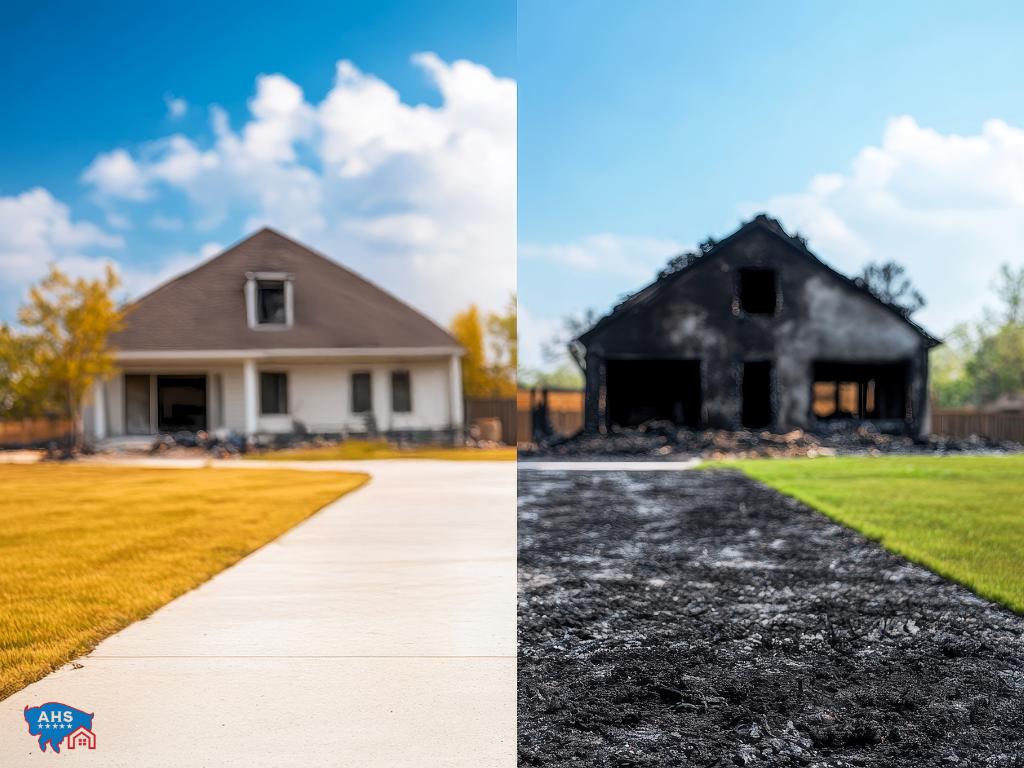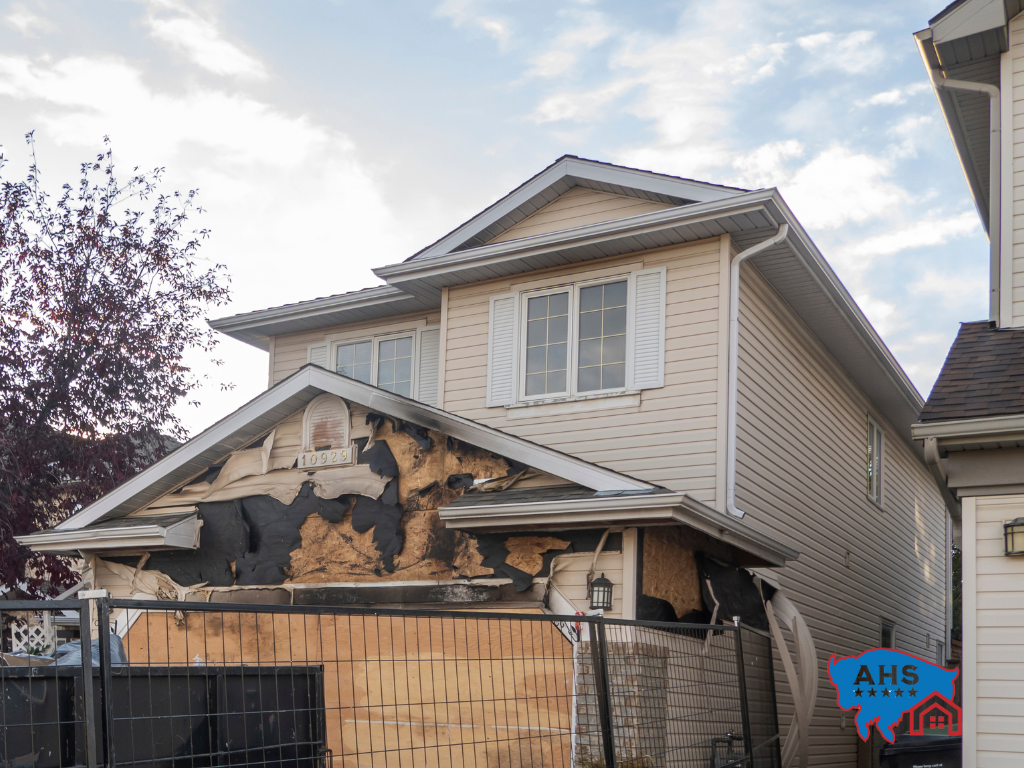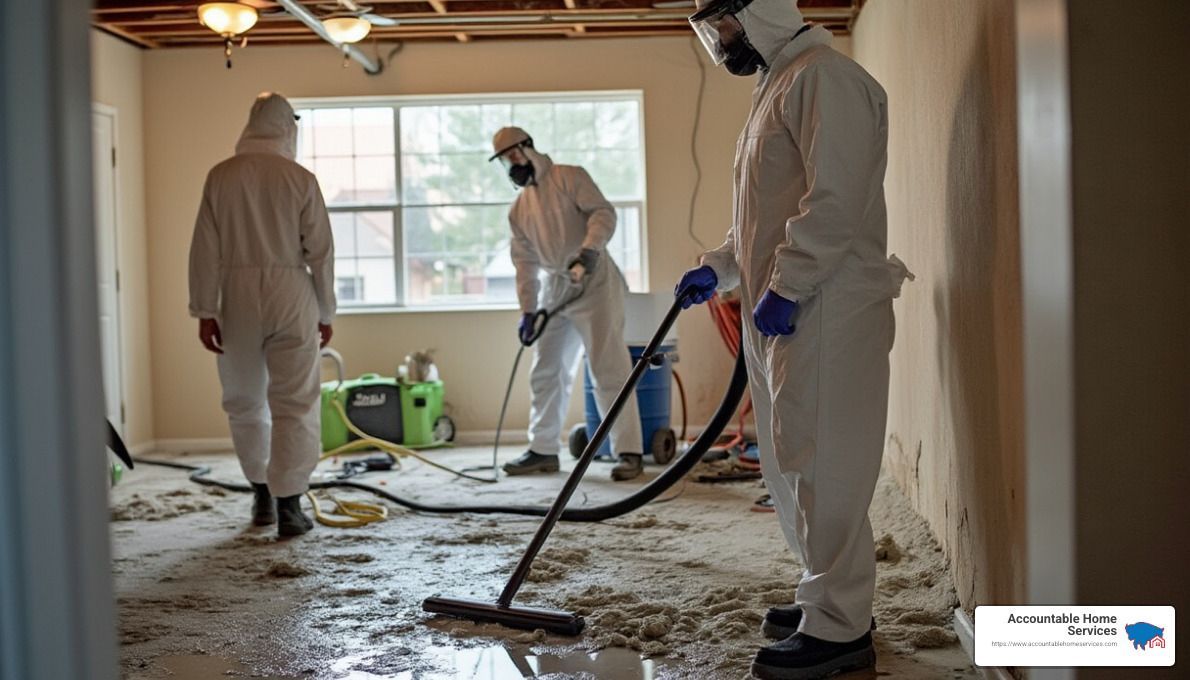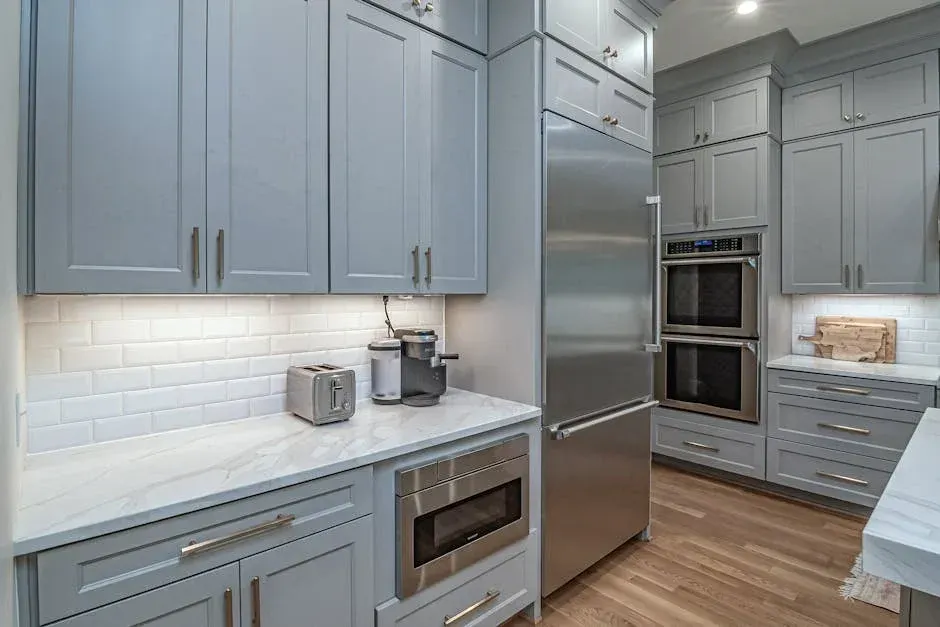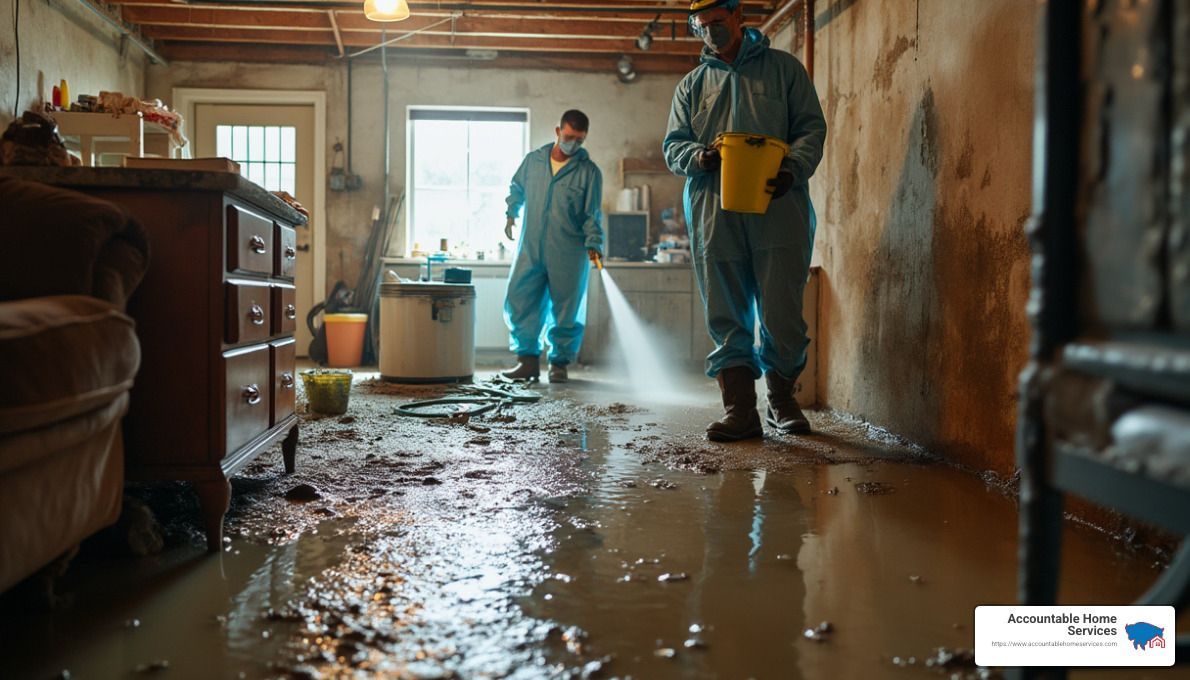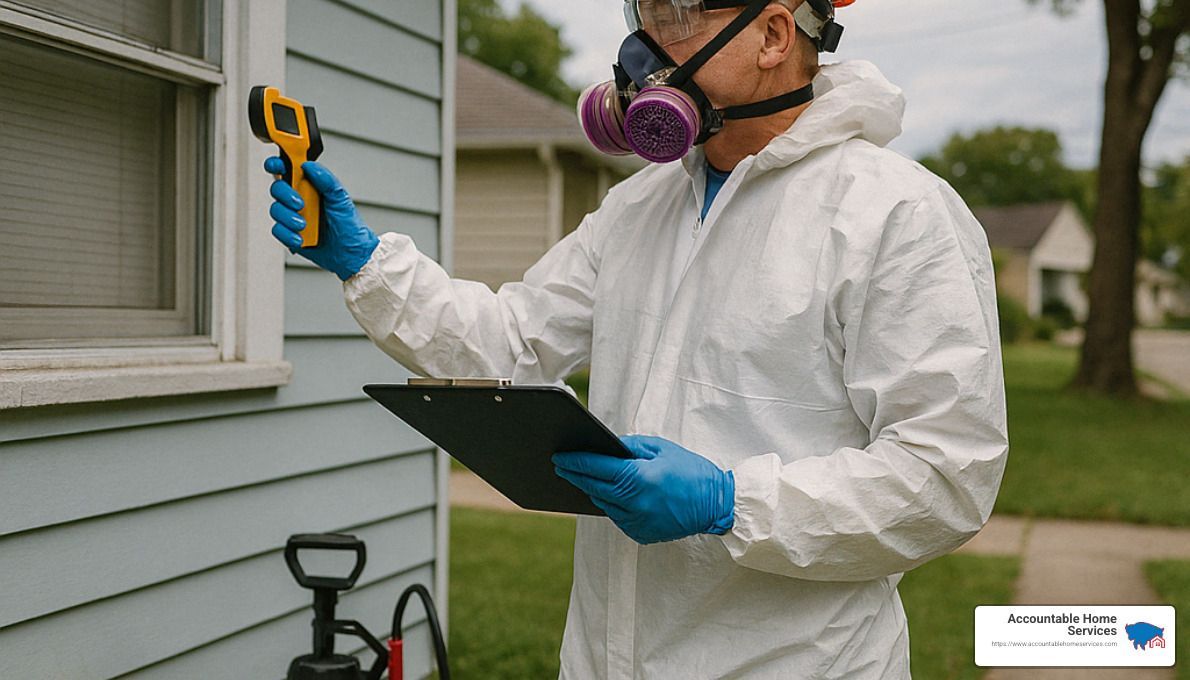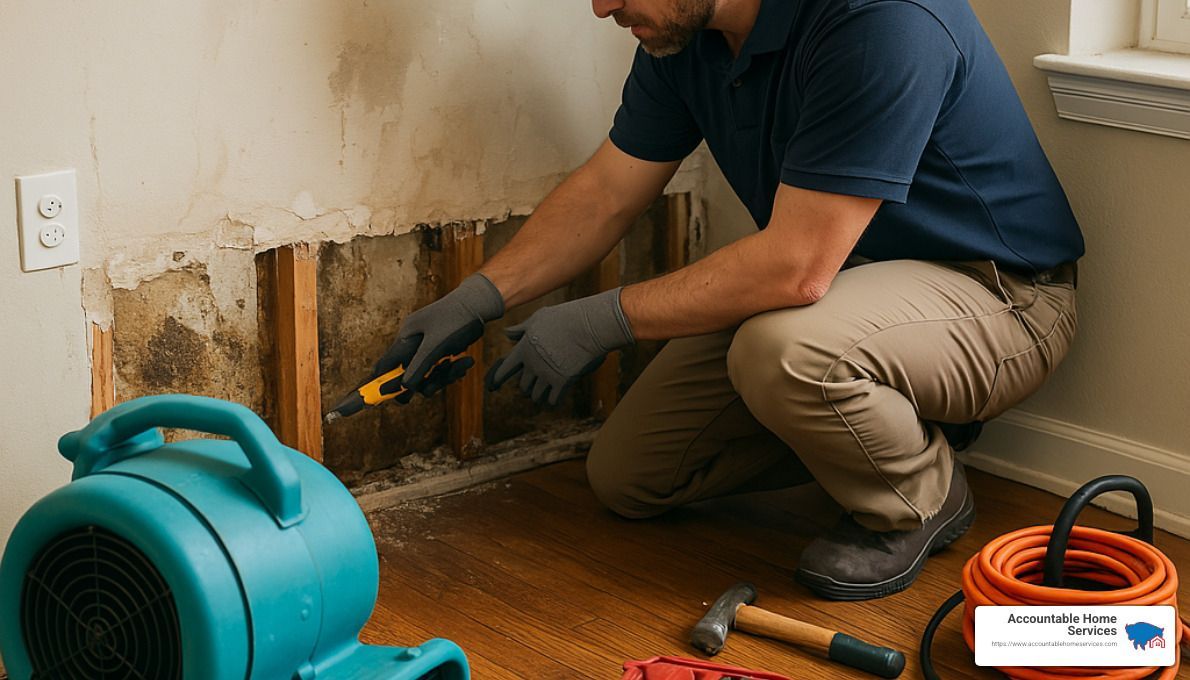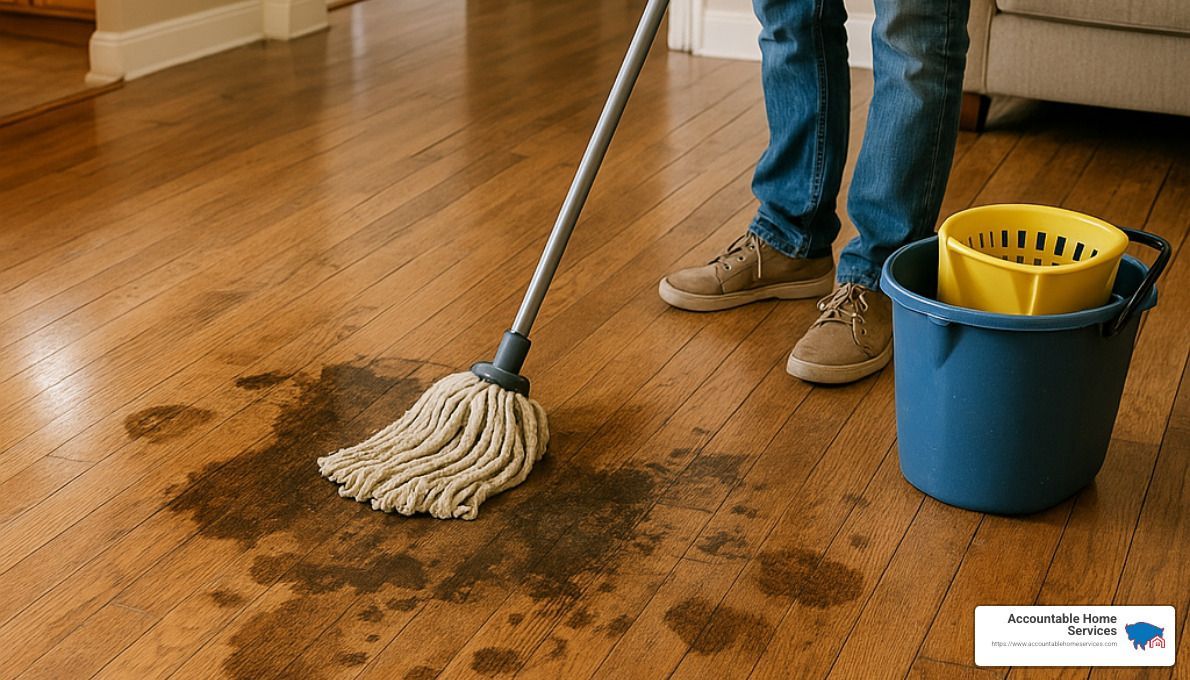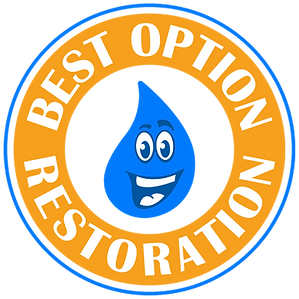Blog
Sewage backup cleanup cost can be a daunting concern for homeowners, with potential expenses ranging from $2,000 to upwards of $50,000 for extreme cases. Understanding what influences these costs and the risks involved is essential for making informed decisions. Key factors include the extent of contamination, the amount of water damage, and the necessity for professional expertise. Sewage backups can cause serious health hazards due to bacteria and pathogens present in the wastewater, posing risks to both residents and properties. Rapid response is crucial to minimizing damage and reducing costs.
I’m Mike Martinez, owner of Accountable Home Services. With years of expertise in property restoration in the Denver area, my team is committed to helping homeowners steer the often stressful experience of sewage backup cleanup. From documentation for insurance claims to implementing effective remediation solutions, we ensure a prompt and professional response to protect your home and health.
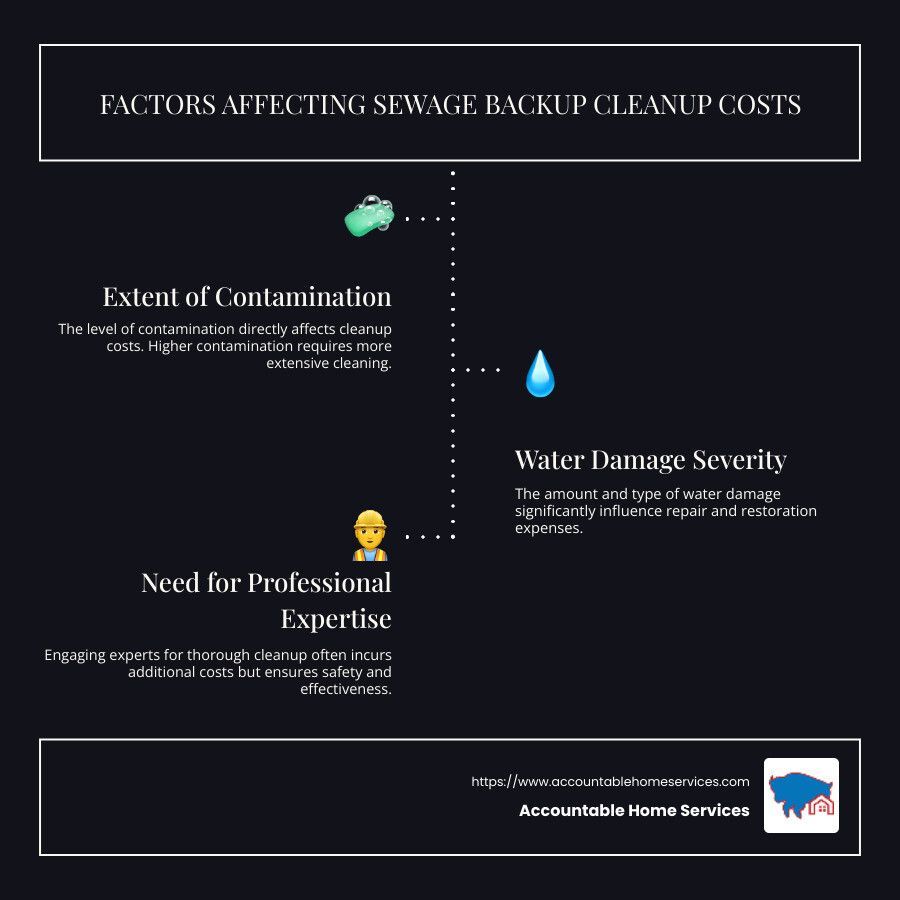
Understanding Sewage Backup Cleanup Costs
Dealing with a sewage backup is never pleasant. It's not just about the mess; it's about the health risks and potential damage to your home. Understanding the sewage backup cleanup cost can help you prepare and act quickly when disaster strikes.
Factors Influencing Costs
Several factors impact the cost of cleaning up after a sewage backup. Here’s a breakdown:
- Contamination Levels: The type of sewage—clean water, gray water, or blackwater—affects the cleanup cost. Blackwater, which contains harmful bacteria and pathogens, requires more extensive cleaning and disinfection, making it the most expensive.
- Water Damage: The extent of water damage plays a significant role. Water can seep into floors, walls, and other materials, causing structural damage. The more extensive the damage, the higher the cost for repairs and restoration.
- Accessibility: If the affected area is hard to reach, such as a basement or crawl space, it might require more time and specialized equipment to clean, increasing the overall cost.
- Professional Expertise: Hiring certified professionals is crucial. They have the right equipment and knowledge to handle hazardous materials safely and efficiently. Their expertise ensures thorough cleanup and minimizes health risks.
Common Cost Ranges
Understanding the typical cost range for sewage backup cleanup can help you budget and plan accordingly:
- Average Costs: The average cost ranges from $2,000 to $10,000. This depends on the severity of the backup and the area affected.
- Extreme Cases: In rare instances, costs can soar to $50,000, especially when significant plumbing repairs are needed or if the contamination is extensive.
- Cost Per Square Foot: On average, cleanup costs around $7 to $14 per square foot. This includes removing sewage, cleaning, disinfecting, and restoring the affected areas.
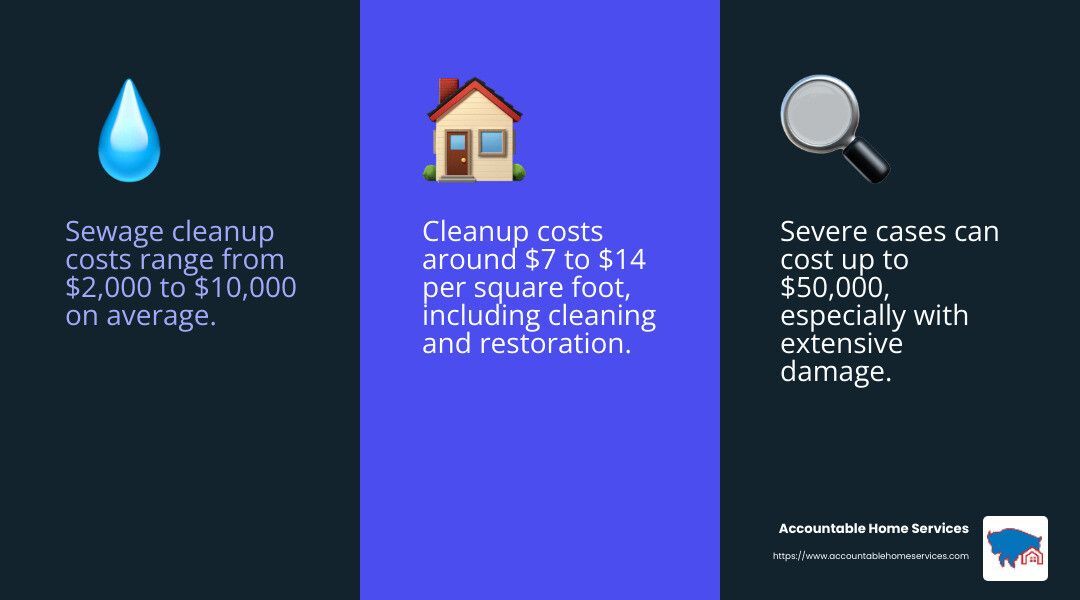
In an emergency, quick action is vital. The sooner you address the issue, the less extensive—and expensive—the damage will be. At Accountable Home Services, we’re here to help you manage these challenges efficiently and effectively.
Breakdown of Sewage Backup Cleanup Costs
Understanding the breakdown of sewage backup cleanup cost is crucial for homeowners facing this unfortunate situation. Let's explore the key components that contribute to the overall expense.
Repair Costs
- Plumbing Fees: When a sewage backup occurs, plumbing issues are often at the heart of the problem. Hiring a professional plumber to address these issues is essential. This might include unclogging main sewer lines or repairing damaged pipes. Plumbing fees can vary widely based on the complexity of the problem.
- Emergency Call-Out: If the backup happens outside of regular business hours, an emergency call-out may be necessary. This can add to the cost but is often unavoidable to prevent further damage.
- Material Costs: Repairing the damage caused by sewage backup often requires replacing materials like drywall, flooring, and insulation. These material costs can add up quickly, especially if the damage is extensive.
Cleanup Costs
- Sanitization: After a sewage backup, thorough cleaning and sanitization are critical to ensure the area is safe and free from harmful bacteria and pathogens. This process involves using high-grade disinfectants and specialized cleaning techniques.
- Deodorization: Sewage backups can leave behind unpleasant odors. Deodorization is a necessary step to restore the affected area to a livable condition.
- Equipment Rental: Cleanup often requires specialized equipment like industrial-grade vacuums, dehumidifiers, and air scrubbers. Renting this equipment can be a significant part of the cleanup cost.
Additional Expenses
- Sewer Scope Inspection: To determine the root cause of the sewage backup, a sewer scope inspection may be necessary. This involves using a camera to inspect the sewer line for blockages or damage.
- Septic Tank Pumping: If your home uses a septic system, pumping the septic tank might be required to prevent future backups. This is an additional cost to consider.
- Tree Root Removal: Tree roots can infiltrate sewer lines and cause blockages. Removing these roots often requires specialized services and can increase the overall expense.
In summary, the cost of dealing with a sewage backup involves various components, from immediate repairs to thorough cleanup and additional preventative measures. By understanding these costs, you can better prepare and make informed decisions during this challenging time.
Insurance and Financial Assistance
Dealing with a sewage backup can be overwhelming, both emotionally and financially. Thankfully, insurance and financial assistance options can help ease the burden.
Does Insurance Cover Sewage Backup?
Homeowner’s insurance typically does not cover sewage backup unless you have purchased additional coverage. Sewer backup coverage is an optional endorsement that can be added to your existing policy. This coverage can be a lifesaver, covering the cost of cleanup, repairs, and even some replacements.
Policy costs for this additional coverage vary, but they are generally affordable compared to the potential out-of-pocket expenses of a major sewage backup. It's crucial to review your policy and discuss with your insurance agent whether adding this coverage is right for you.
Financial Assistance Options
If insurance isn't enough or you're without coverage, there are other ways to get financial help. Many municipalities offer programs to assist homeowners with sewage backup issues. These may include grants or low-interest loans to help cover repair and cleanup costs.
Municipal programs can be a great resource, especially in areas prone to sewage backups. Check with your local government to see what assistance is available. Additionally, some loans and grants are designed specifically for emergency home repairs, which can include sewage cleanup.
Pro tip: Always keep detailed records of all expenses related to the sewage backup. This documentation can be essential when applying for financial assistance or filing an insurance claim.
In conclusion, while sewage backups are a serious issue, understanding your insurance options and available financial assistance can make managing the situation much more manageable. Up next, we'll address some frequently asked questions about sewage backup cleanup costs to further guide you through this process.
Frequently Asked Questions about Sewage Backup Cleanup Cost
How much does sewage cleanup cost per square foot?
The cost for sewage cleanup typically ranges from $7 to $14 per square foot. This can vary depending on factors like the extent of contamination, the type of sewage, and the complexity of the cleanup. For instance, dealing with blackwater, which is highly contaminated, might push costs to the higher end of the spectrum.
Is it safe to stay in a house with sewage backup?
Staying in a house with a sewage backup is generally unsafe. Sewage contains harmful bacteria and viruses that pose serious health risks. If you experience a sewage backup, it's crucial to evacuate affected areas and contact professionals immediately. They have the expertise and equipment to handle the cleanup safely and effectively.
Do plumbers clean up sewage?
While plumbers can address the cause of a sewage backup, such as a clogged or damaged pipe, they typically do not handle the cleanup of contaminated water and materials. For that, you'll need a specialized sewage cleanup service. These professionals are equipped to remove sewage, sanitize affected areas, and restore your home to a safe condition.
Understanding these aspects of sewage backup cleanup cost can help you prepare and respond effectively when faced with such an emergency. Up next, we'll explore how to prevent sewage backups and discuss the advantages of professional help in maintaining a safe and healthy home environment.
Conclusion
Dealing with a sewage backup can be overwhelming, but knowing how to handle it can save time, stress, and money. Accountable Home Services is here to help you through these challenging situations with professional expertise and a commitment to quality service.
Why Choose Professional Help?
Handling sewage cleanup on your own can pose health risks and may lead to further damage if not done correctly. Professional help ensures that the job is done safely and thoroughly. Our certified technicians at Accountable Home Services use advanced equipment and proven methods to manage sewage backups effectively. We prioritize your safety and the integrity of your home, ensuring a comprehensive cleanup and restoration process.
Prevention Strategies
Preventing sewage backups is crucial to avoiding the high costs and health hazards associated with them. Here are some simple strategies to minimize risks:
- Regular Maintenance: Schedule routine inspections of your sewer lines and septic systems. This can help identify potential issues before they become significant problems.
- Proper Disposal: Avoid flushing non-biodegradable items or pouring grease down the drains. These can clog pipes and lead to backups.
- Install Backwater Valves: These devices prevent sewage from flowing back into your home during heavy rains or floods.
- Tree Management: Keep an eye on tree roots near sewer lines, as they can cause blockages or even damage pipes over time.
By following these prevention strategies, you can reduce the likelihood of experiencing a sewage backup and the associated cleanup costs.
Trust Accountable Home Services
When emergencies strike, having a reliable partner is invaluable. Accountable Home Services offers 24/7 emergency response and direct insurance billing to minimize stress. Our family-owned business is committed to providing transparent, top-quality craftsmanship custom to Colorado's unique needs.
For more information on our services and how we can help you with sewage cleanup, visit our Sewage Cleanup Service Page.
In conclusion, while sewage backups can be daunting, understanding the costs and preventive measures can empower you to make informed decisions. Rely on professionals like us to restore your home safely and efficiently, ensuring a healthy living environment for you and your family.

